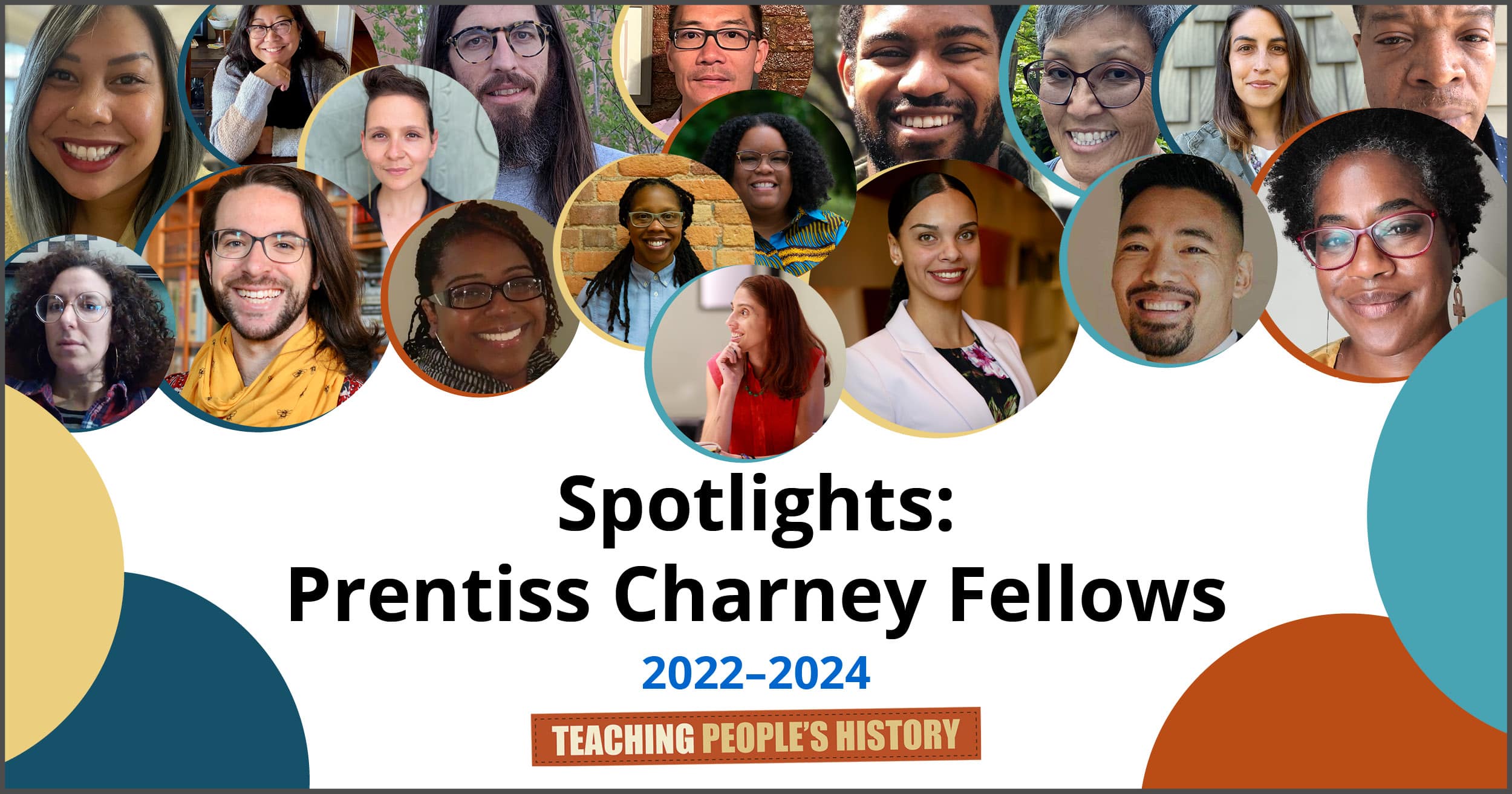
Each month we feature one of our Prentiss Charney Fellows. The fellowship offers support for a cohort of people’s history educator leaders to study, learn, and organize together.
Zachary Wilson
High school Language Arts and social studies teacher in Washington, D.C.
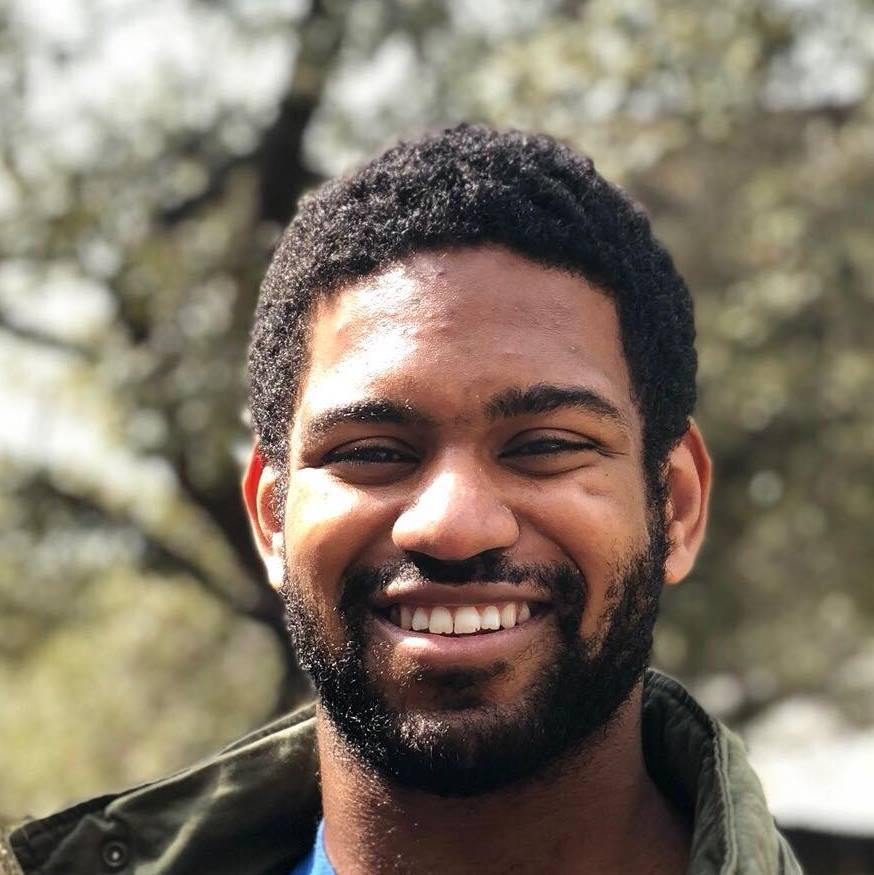 Zachary Wilson taught English, Black Studies, and Mexican American Studies in San Antonio before bringing his talents as an educator activist to Washington, D.C. Animating Zack’s work are his keen sense of how segregation manifests in schools, understanding of the challenges educators face against enduring injustices, and hope that future generations inherit a better world. He helps build that better world in and beyond the classroom through curricular writing and convenings, including his role as a D.C. Area Educators for Social Justice working group member. Last summer, he led a workshop for fellow educators at the second annual DCAESJ Social Justice Curriculum Fair.
Zachary Wilson taught English, Black Studies, and Mexican American Studies in San Antonio before bringing his talents as an educator activist to Washington, D.C. Animating Zack’s work are his keen sense of how segregation manifests in schools, understanding of the challenges educators face against enduring injustices, and hope that future generations inherit a better world. He helps build that better world in and beyond the classroom through curricular writing and convenings, including his role as a D.C. Area Educators for Social Justice working group member. Last summer, he led a workshop for fellow educators at the second annual DCAESJ Social Justice Curriculum Fair.
As a Prentiss Charney fellow, Zack has developed two curriculum projects. The first is a project-based unit called How Should We Remember the Alamo?, which draws on his teaching in San Antonio. Here, in Zack’s words, “students discover that there are multiple, conflicting ways to ‘remember’ the Alamo: as the site of sacrifice for political freedom and self-determination, as a plantation where the ancestors of the Tāp Pīlam Coahuiltecan Nation faced exploitation, as an auction house where Black bodies were sold during the era of King Cotton, and as the site symbolizing the beginnings of Juan Crow subjugation of Mexican Texans.”
Zack’s second project, Decolonizing the Canon: Romance and Horror, prompts students to explore how authors of color with ties to the Global South reimagine Pride and Prejudice, Frankenstein, and other canonical texts through a present-day, social justice lens.
Reflecting on the fellowship, Zack described it as one of the “most life-affirming spaces of community that I’ve participated in and contributed to during my time as a teacher.”
Heather Barcan
High school English teacher and instructional coach in Portland, Oregon.
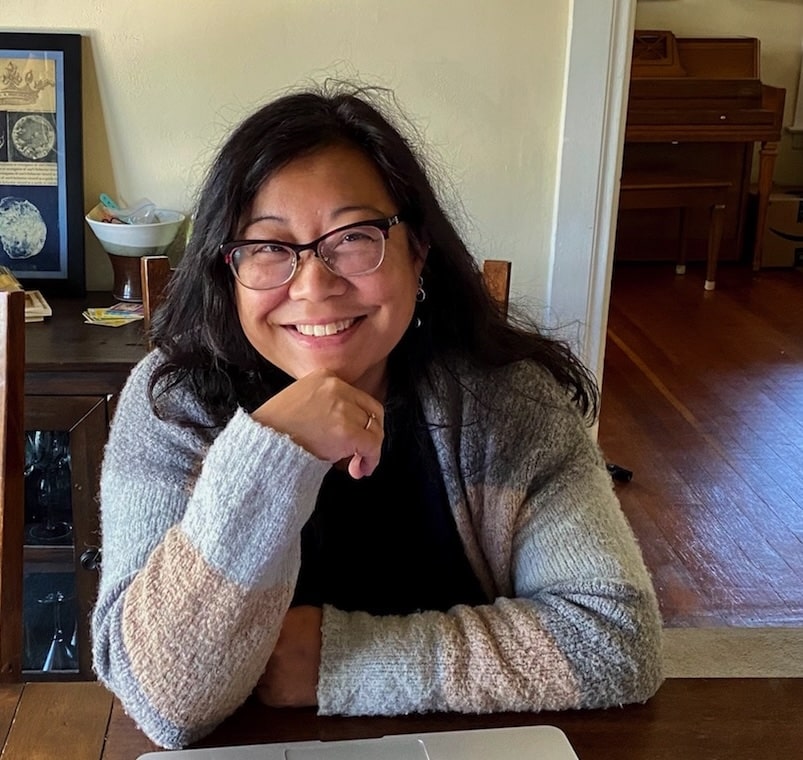 Heather Barcan is a teacher activist, an Oregon Writing Project coach, and an instructional coach for the Parkrose School District in Portland. Her work is steeped in the importance of adapting to meet students where they are and building a loving, supportive, engaged community at school.
Heather Barcan is a teacher activist, an Oregon Writing Project coach, and an instructional coach for the Parkrose School District in Portland. Her work is steeped in the importance of adapting to meet students where they are and building a loving, supportive, engaged community at school.
Heather has served as the teacher advisor for the Pacific Islander Student Union at her current and prior school. She is concerned that Pacific Islander students are among the most alienated and marginalized at the school. These experiences and her family history, including ancestral ties to Native Hawaiʻi’s stolen lands, have shaped her Prentiss Charney fellowship project.
Heather is designing an action-research project to understand and address the marginalization of Pacific Islander students, with a focus on how the invisibility of Pacific Islanders in most curriculum negatively impacts young people. Throughout the year, she is conducting interviews and focus groups to determine effective ways to collaborate with students on interventions in the curriculum and beyond.
Reflecting on the first year of the fellowship, Heather noted her key takeaway was “a reframing of what it means to be an activist and what it means to be an organizer.” Obstacles to improving the educational system can be daunting, but she found encouragement and strategy in fellowship meetings where “we talked about organizing as building relationships — creating solid relationships where people know they can trust you, and then working together” to imagine and build a better world.
Monique McKenney
High school social studies teacher and Black and Brown Action Initiative co-sponsor in Philadelphia.
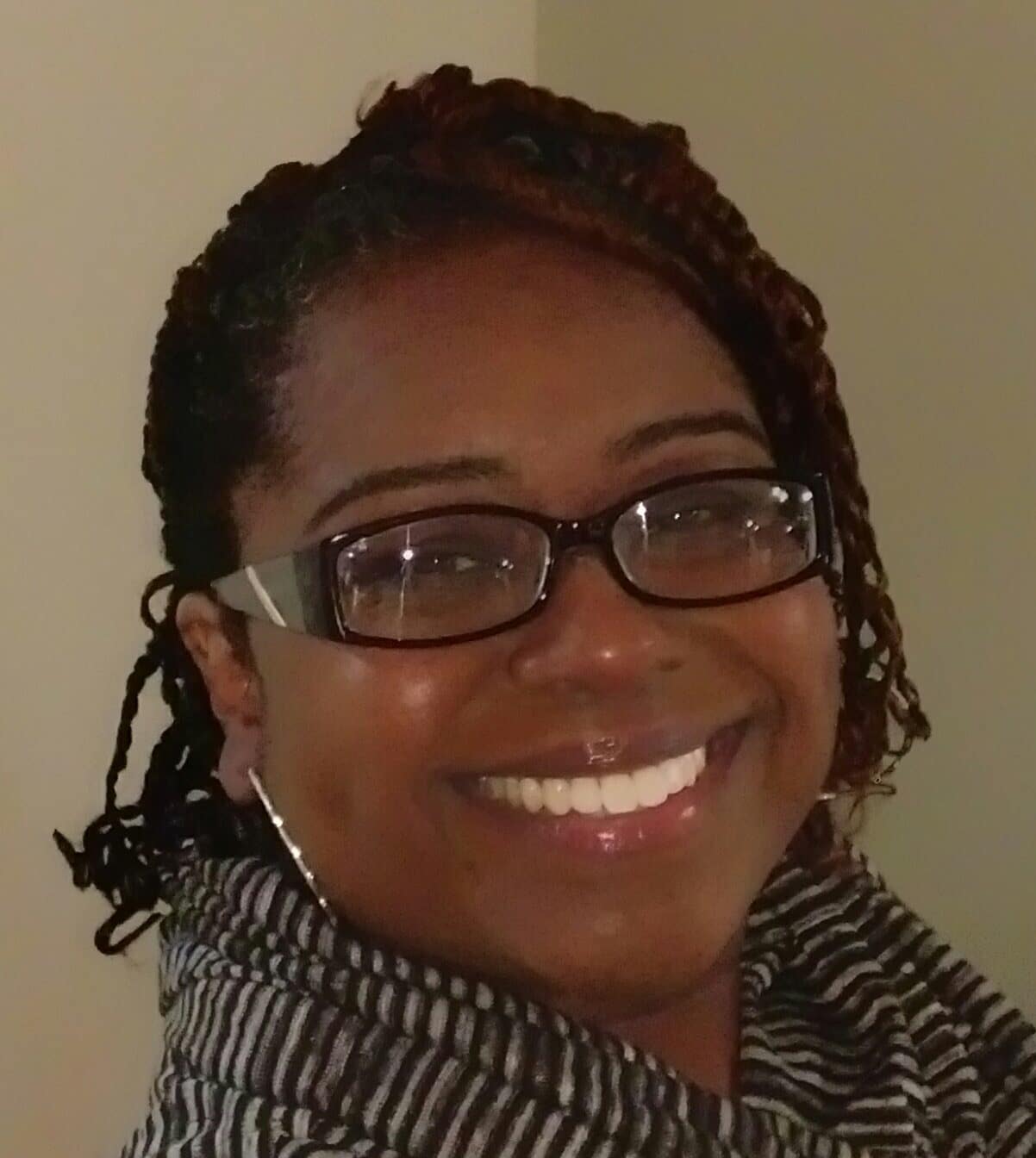 Monique McKenney teaches high school social studies and co-sponsors the Black and Brown Action Initiative at Central High School in Philadelphia. Her work as an educator is grounded in cultivating radical young leaders, curriculum, and teaching staff that fully reflect BIPOC students.
Monique McKenney teaches high school social studies and co-sponsors the Black and Brown Action Initiative at Central High School in Philadelphia. Her work as an educator is grounded in cultivating radical young leaders, curriculum, and teaching staff that fully reflect BIPOC students.
As a Prentiss Charney fellow, Monique is developing a curriculum about places across U.S. history that have hosted what she terms “Black self-sustaining communities.” In particular, her project focuses on the histories of three vibrant Black communities with large degrees of economic independence in the late 19th and early 20th centuries: Jackson Ward in Richmond, Virginia; Hayti in Durham, North Carolina; and the Fourth Avenue District in Birmingham, Alabama.
Monique is delving into first-person accounts, Black press articles, photographs, and secondary sources of these three communities to inform her curriculum. This rich array of sources and the lessons that stem from it can both combat the standard whitewashed narratives of U.S. history and provide blueprints for nurturing strong, thriving, justice-oriented communities today.
Ken Hung / Rachel Toliver
High school social studies teacher and Asian Pacific Islander Union co-sponsor / Culturally Responsive Education specialist in Philadelphia.
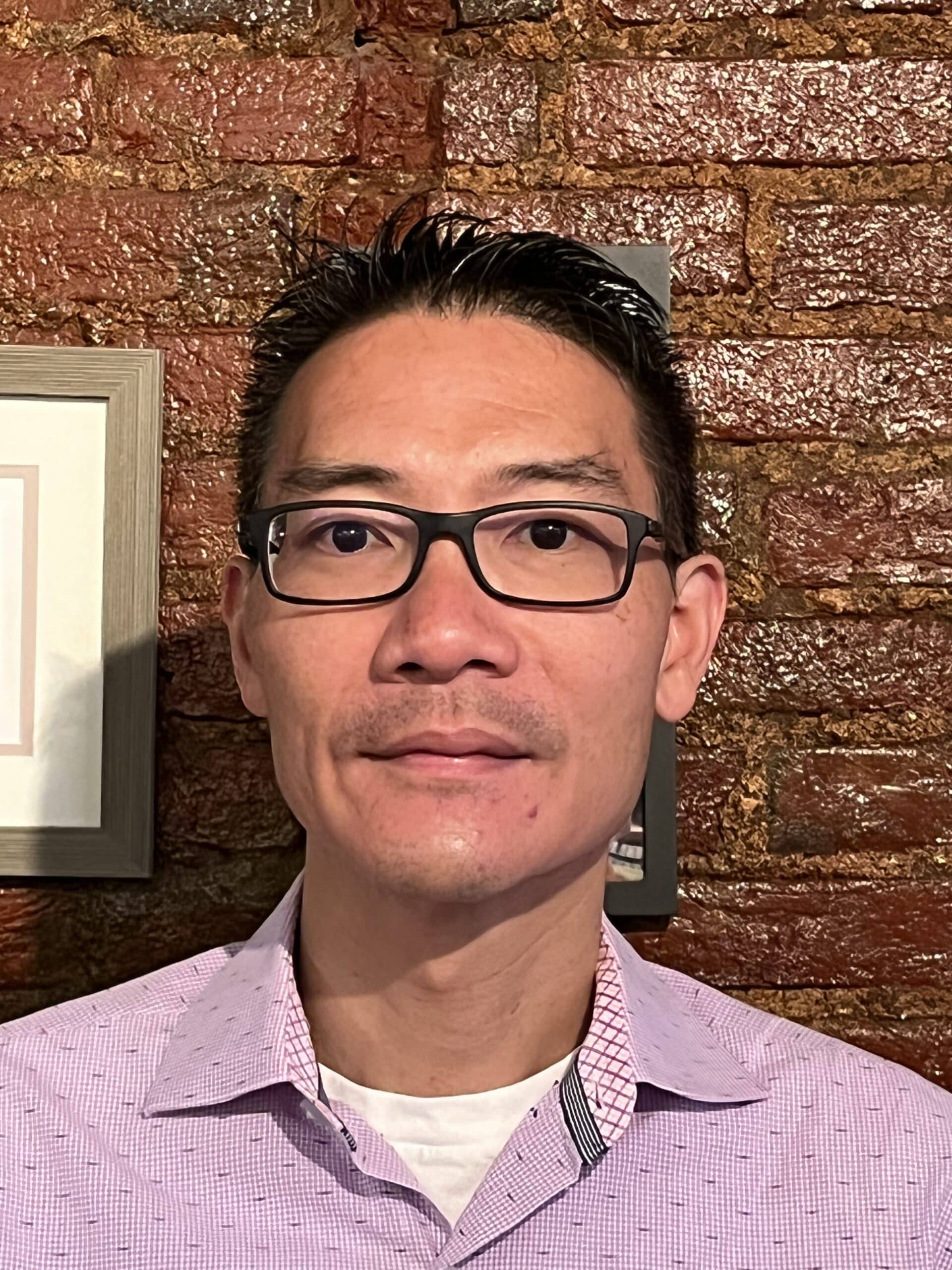 In the School District of Philadelphia, Ken Hung and Rachel Toliver are co-developing and co-teaching a pilot Asian American Studies course designed to foster community, joy, activism, and liberation. As a team, Ken and Rachel bring a wealth of education experience to this joint fellowship project and offer workshops to other Philadelphia public school teachers.
In the School District of Philadelphia, Ken Hung and Rachel Toliver are co-developing and co-teaching a pilot Asian American Studies course designed to foster community, joy, activism, and liberation. As a team, Ken and Rachel bring a wealth of education experience to this joint fellowship project and offer workshops to other Philadelphia public school teachers.
Ken has been an educator and mentor for over 20 years. He teaches at Central High School, where he also co-sponsors the Asian Pacific Islander Union and co-directs the Bridge Program — a leadership and community building program for incoming 9th graders from marginalized groups.
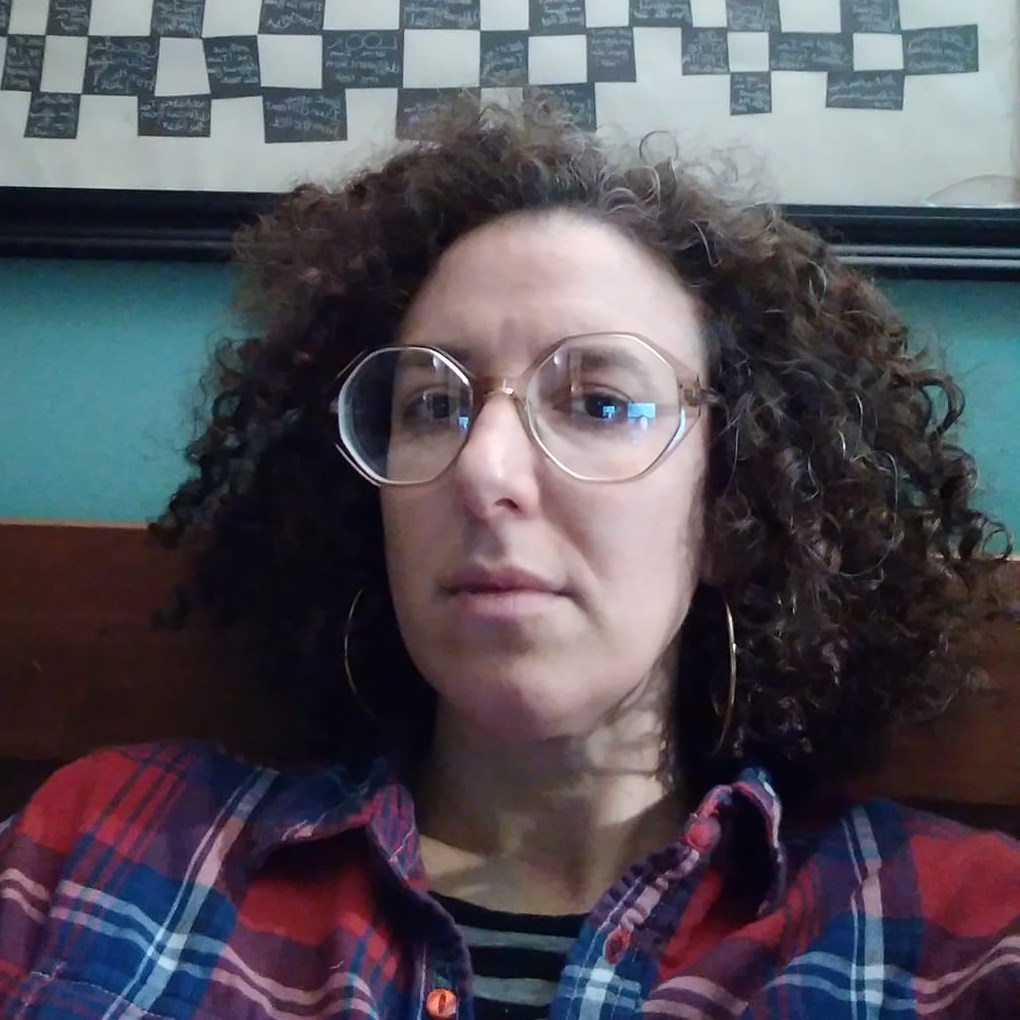 Rachel also taught at Central for several years and holds a Master of Fine Arts in creative nonfiction, which she applies to her current role as a Culturally Responsive Education specialist. She identifies how white supremacy shows up in texts, rewrites curricula to uplift intersectional identities, and trains other writers in the principles of Culturally Responsive Education.
Rachel also taught at Central for several years and holds a Master of Fine Arts in creative nonfiction, which she applies to her current role as a Culturally Responsive Education specialist. She identifies how white supremacy shows up in texts, rewrites curricula to uplift intersectional identities, and trains other writers in the principles of Culturally Responsive Education.
A foundational element of Ken and Rachel’s work is their steadfast commitment to collaborating with young people. They have designed their course from the ground up with students who shaped inquiry questions, themes, and activities across units. During the fellowship, Ken writes, “Rachel and I not only successfully taught the class, we created a caring, nurturing community amongst our students” whose activism poured into rallies to protect Philadelphia’s Chinatown from gentrification and displacement.
Tiffany Mitchell Patterson
School district social studies manager in Washington, D.C.
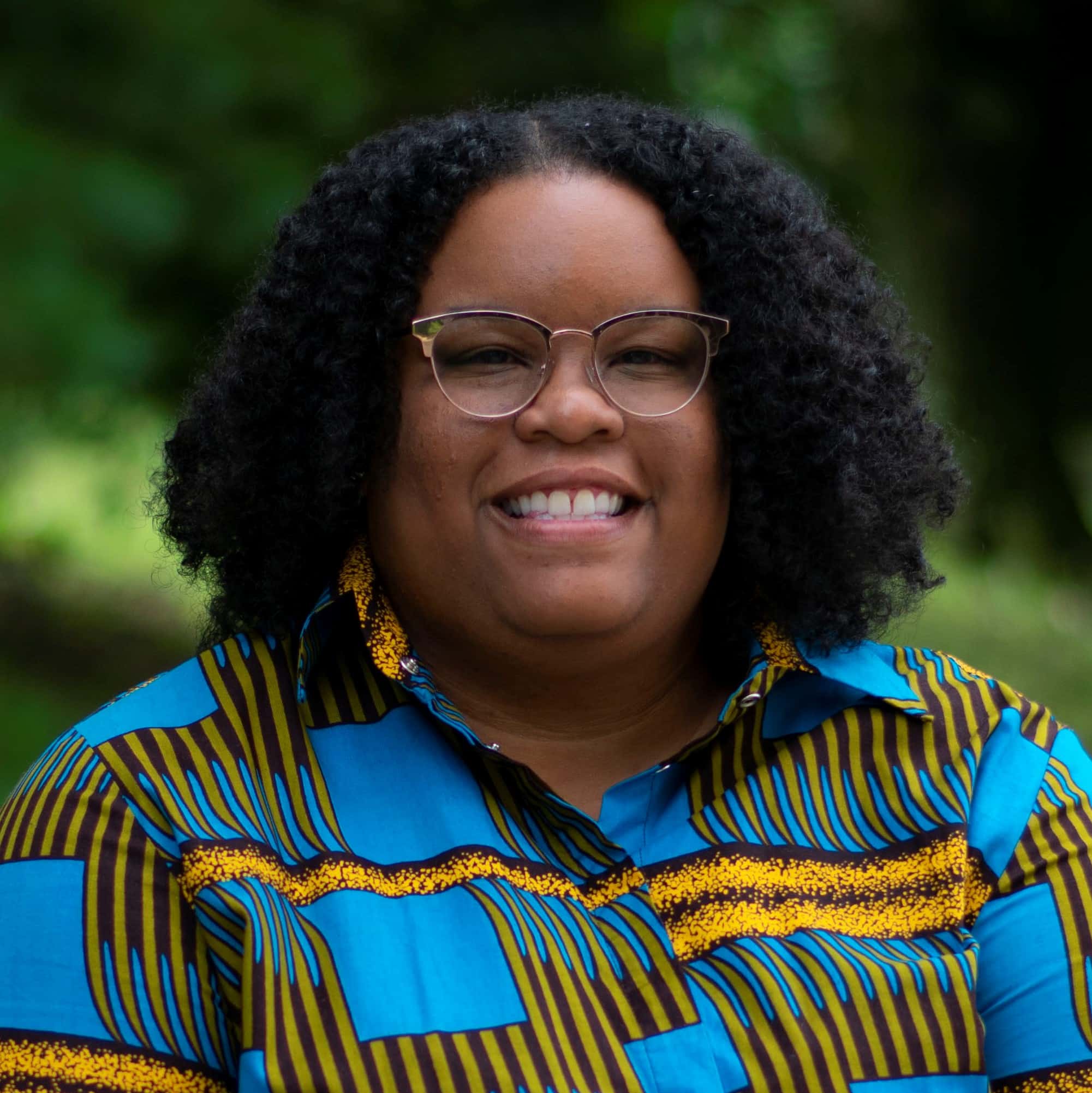 Tiffany Mitchell Patterson is a scholar activist and manager of social studies for the District of Columbia Public Schools. She has worn many hats as an educator — from classroom teacher, to teacher educator, to district leader — and brings joy, connection, and critical analysis to every role she inhabits.
Tiffany Mitchell Patterson is a scholar activist and manager of social studies for the District of Columbia Public Schools. She has worn many hats as an educator — from classroom teacher, to teacher educator, to district leader — and brings joy, connection, and critical analysis to every role she inhabits.
In her current position, Tiffany is a key source of support for social studies instructional coaches and teacher leaders in 11 middle and high schools. She has also guided the development and adoption of new, greatly improved district social studies standards anchored in social justice, civic engagement, and media literacy.
As a champion of anti-racist education, Tiffany is active in local and national nonprofit work. She has participated in a D.C. Area Educators for Social Justice working group, guest hosted our online Teach the Black Freedom Struggle classes, advised on our Teach Reconstruction campaign, written lessons for The Rebellious Life of Mrs. Rosa Parks teaching guide, collaborated on sessions at American Historical Association and National Council for the Social Studies conferences, and much more.
Tiffany’s Prentiss Charney fellowship project centers on the Reconstruction era, which she sees as one of the most important and misunderstood periods of U.S. history. She has created and facilitated workshops that are tailored to a variety of audiences and rooted in the content and pedagogy of our Reconstruction report and curriculum. For Tiffany, this fellowship has been a “soul-fulfilling space” to expand her work in solidarity with other educators across the country.
Nick DePascal
High school English teacher in Albuquerque, New Mexico.
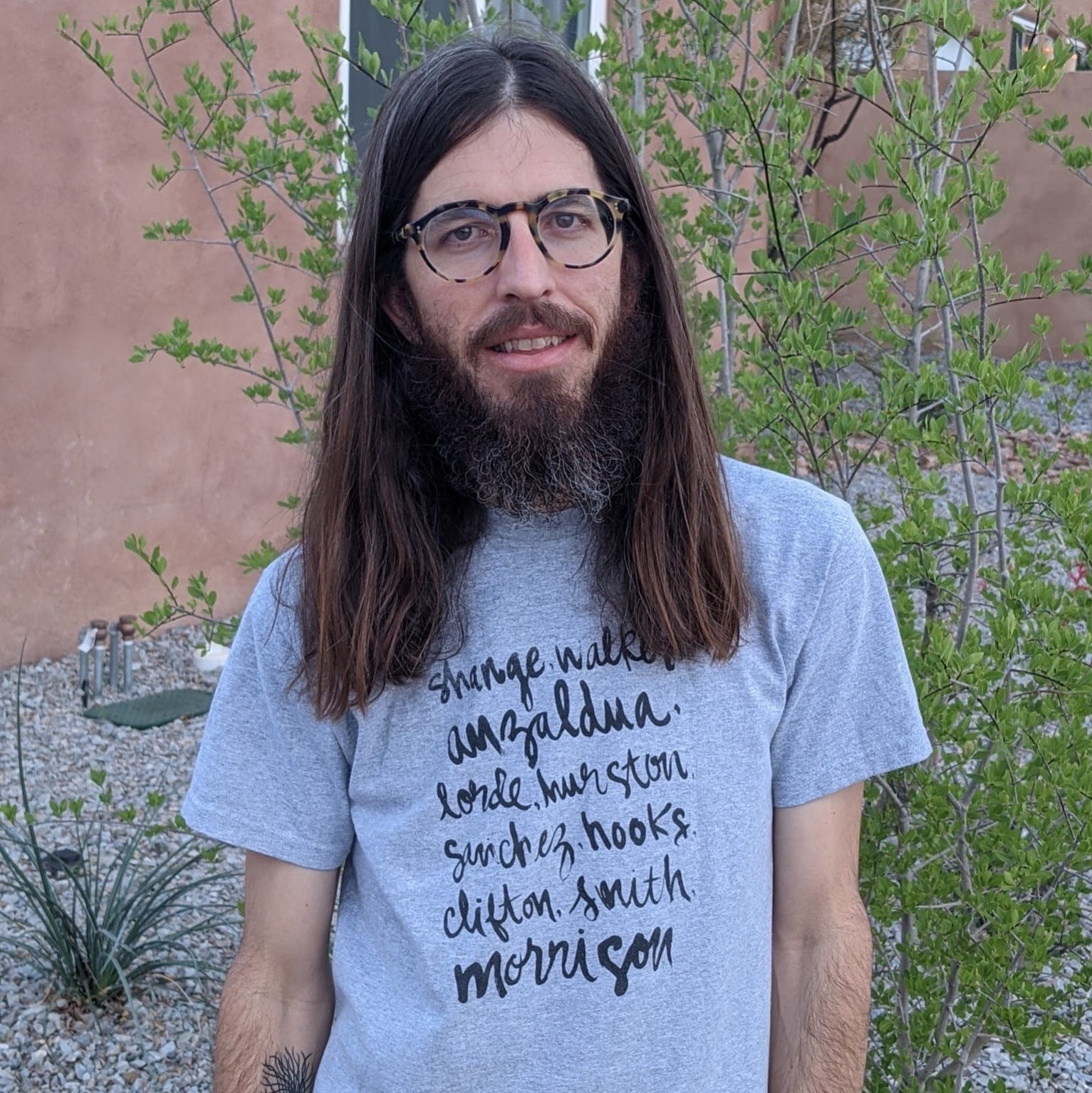 At Sandia High School in Albuquerque, Nick shows his students how literature is imbued with historical and contemporary struggles over race, class, and gender. He uses a wide range of people’s history lessons to teach, for example, how classics like John Steinbeck’s The Grapes of Wrath connect to McCarthyism, labor, climate change, the Green New Deal, and more.
At Sandia High School in Albuquerque, Nick shows his students how literature is imbued with historical and contemporary struggles over race, class, and gender. He uses a wide range of people’s history lessons to teach, for example, how classics like John Steinbeck’s The Grapes of Wrath connect to McCarthyism, labor, climate change, the Green New Deal, and more.
Beyond the classroom, Nick has coordinated a Teaching for Black Lives study group and organized a Teach Truth Day of Action event to confront at the local level the political project behind curricular gag orders and book bans.
As a Prentiss Charney fellow, Nick is developing curriculum for both English and social studies classrooms. He has created a mixer activity to accompany a novel study of Octavia E. Butler’s Kindred, focusing on restrictions and regulations of interracial relationships and marriages over the course of U.S. history. A goal of this lesson, Nick explains, is to “allow students to see how multi-varied are the tentacles of racism, and how sex and marriage were (and are) sites of control for white supremacy.”
Amid his hectic schedule, Nick appreciates how the fellowship meetings with other educators have “constantly re-energized” him to push forward with his project. The core of the fellowship, he notes, is “building a community and a practice in which to build tangible manifestations of our political and educational commitments.”
Gabriel Tanglao
Union organizer.
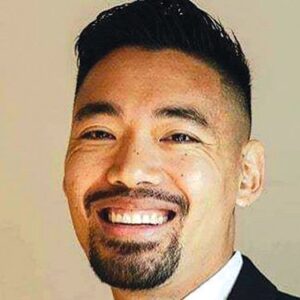 In the summer of 2023, Gabriel took on the role of manager at the National Education Association’s Human and Civil Rights division to continue supporting justice-centered union movement-building work across the country. Advancing educational equity through organized labor enables Gabriel to honor a tradition of his Filipino ancestors fighting for justice as union leaders. Gabriel focused his fellowship work on bringing that legacy to the page, examining the ways his personal history shaped the path he has taken in organizing, and the politics he promotes through his ongoing labor activism.
In the summer of 2023, Gabriel took on the role of manager at the National Education Association’s Human and Civil Rights division to continue supporting justice-centered union movement-building work across the country. Advancing educational equity through organized labor enables Gabriel to honor a tradition of his Filipino ancestors fighting for justice as union leaders. Gabriel focused his fellowship work on bringing that legacy to the page, examining the ways his personal history shaped the path he has taken in organizing, and the politics he promotes through his ongoing labor activism.
Gabriel began his teaching career at Bergenfield High School in one of the most diverse communities in New Jersey. Gabriel’s passion grew in the classroom, community, and union spaces. Remaining grounded as an educator, Gabriel has advocated for the respect of the profession across the country in various leadership roles, including as chair of the New Leaders Council (NLC) National Diversity Committee, member of the NLC National Board of Directors, member of the National Education Association Young Professionals Caucus, Northeast Regional Director of the Asian and Pacific Islander Caucus, member of the NEA Foundation Global Learning Fellowship Advisory Council, and more.
Gabriel has facilitated countless leadership training and professional development around issues of racial justice and equity at the local, national, and international levels. As a new father, Gabriel’s commitment to a more beautifully just world has never been so clear.
Rabiya Kassam-Clay
Social studies teacher in Los Angeles.
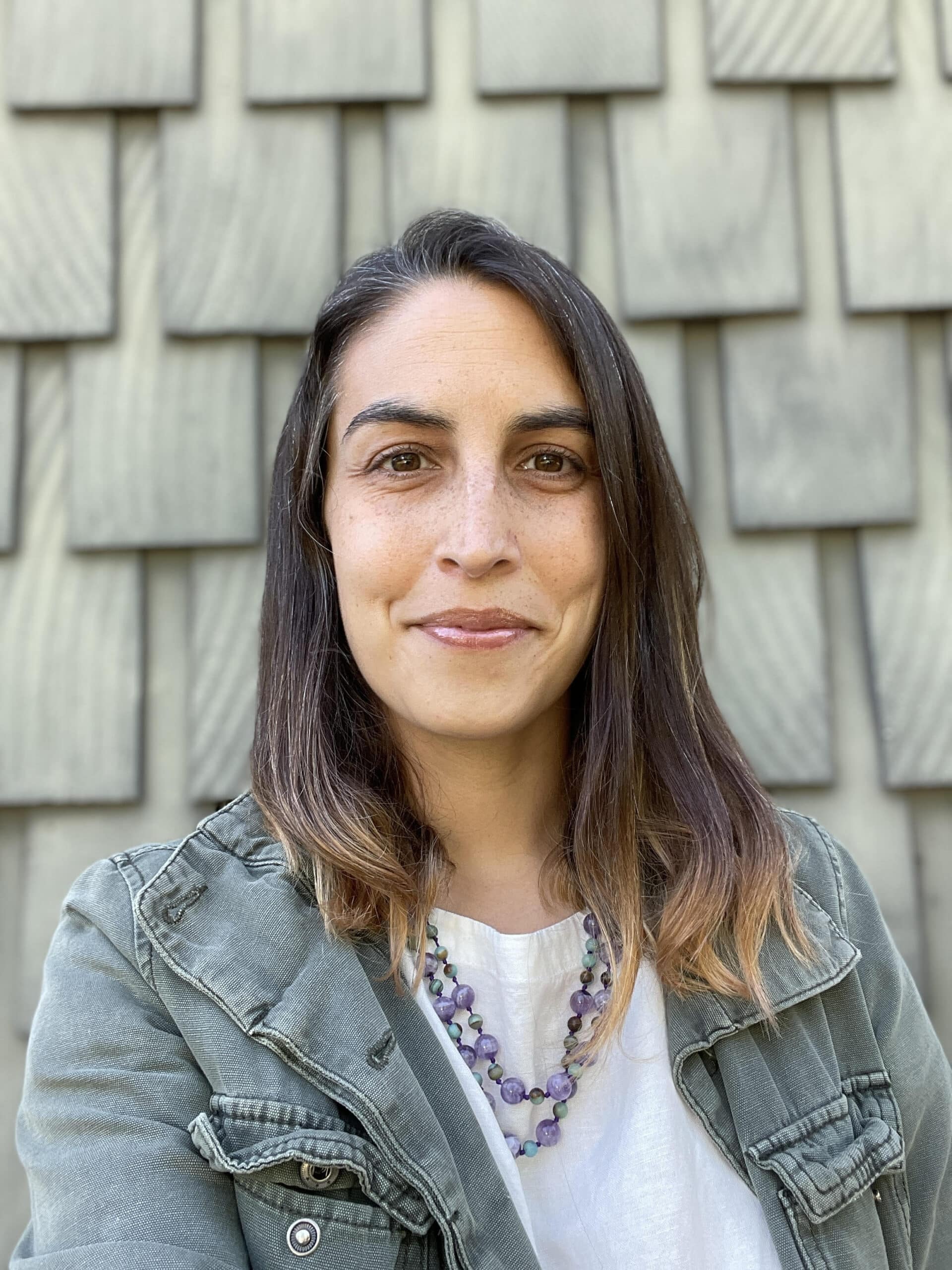 Rabiya has taught for 15 years in Philadelphia, Mexico City, and Los Angeles. Currently she teaches social studies at Marshall High School in Los Angeles Unified School District. Her teaching repertoire includes world history, United States history and government, composition, and literature. In the Rethinking Schools article, “Our Stories: Students Curate the Museum of Corona History,” Rabiya shared some of the creative curriculum she designed in the early days of the COVID-19 lockdown.
Rabiya has taught for 15 years in Philadelphia, Mexico City, and Los Angeles. Currently she teaches social studies at Marshall High School in Los Angeles Unified School District. Her teaching repertoire includes world history, United States history and government, composition, and literature. In the Rethinking Schools article, “Our Stories: Students Curate the Museum of Corona History,” Rabiya shared some of the creative curriculum she designed in the early days of the COVID-19 lockdown.
Rabiya coached teaching fellows with Breakthrough Collaborative, and founded the Flux Teacher Institute, a collective of over 30 expert teachers who provided a diverse array of workshops to over 300 participating teachers.
Rabiya is an educational advisor for Monument Lab and wrote the teaching guides for 1919 by Eve Ewing and There are Trans People Here by H. Melt. In the Spring of 2023, Rabiya led workshops for the Prentiss Charney Fellows and other K–12 educators grounded in Tricia Hersey’s Rest Is Resistance. She continues to lead rest workshops for educators as spaces for teacher colleagues, in partnership with their students, to imagine roles for creativity, comfort, play, and nature in our schools.
Rabiya is a lifelong devotee of science fiction and poetry, a budding gardener and native plants educator, and a proud member of the House of Representatives of United Teachers Los Angeles. You can find out what she is up to in the classroom by visiting @welcomebrilliantminds.
Destiny Andrews
Elementary school teacher in Oakland.
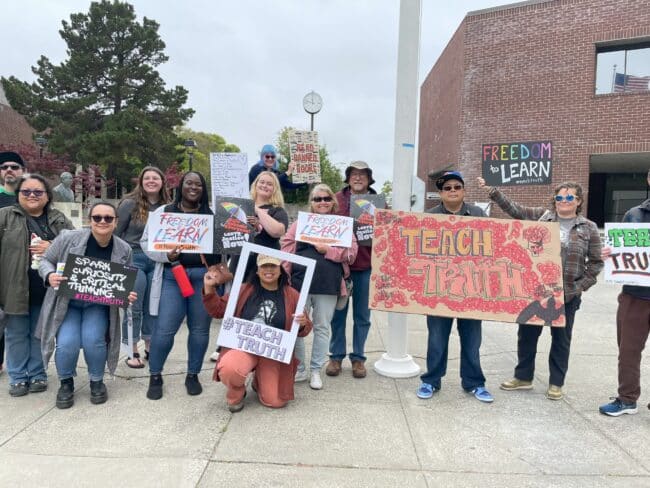
Teach Truth Day of Action in Vallejo. Destiny Andrews in the center with the #TeachTruth photo frame.
In her eight years in the classroom Destiny has organized a Teaching for Black Lives study group and is an active member of her local union. She is currently working with her colleagues to design and implement a K–5 ethnic studies curriculum centered around self, systems, social movements, and solidarity.
During her fellowship, Destiny has worked on updating, revising, and elaborating a lesson she began designing and writing when she participated in the National Endowment for the Humanities’ Summer Institute on the Grassroots History of the Civil Rights Movement in 2021. The lesson introduces elementary students to the life, activism, and organizing philosophy of Ella Baker. By encountering dozens of snapshots of Baker’s long life, young people are equipped to identify the ways her theory of leadership and faith in grassroots activism challenge master narratives about the Civil Rights Movement. Destiny hopes to eventually share the lesson on the Zinn Education Project website and in the pages of Rethinking Schools.
In June of 2023, Destiny organized a Teach Truth Day of Action event in Vallejo. They rallied at Alibi Bookstore and then marched through a farmer’s market to the John F. Kennedy Library.
Sally Stanhope
High school social studies teacher in Atlanta.
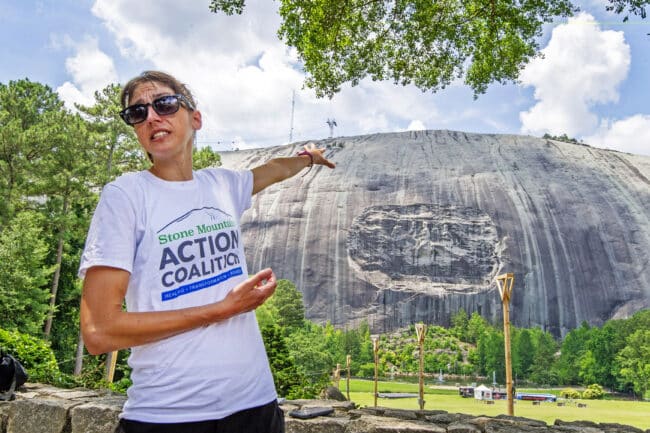
Sally Stanhope talks about the 90-foot carving on the side of Stone Mountain, the largest Confederate monument in the world, during the Stone Mountain Action Coalition led Teach Truth Walk on June 12, 2022. Photo by Dean Hesse.
Sally has taught for 18 years at various levels, from elementary to undergraduate, and has served in a variety of administrative roles including Academic Coach, Class Dean, and Service Learning Coordinator and at the Atlanta History Center designing virtual field trips. Currently, she teaches AP Psychology, history, government, and geography at Chamblee High School and is an active member of a Teaching for Black Lives study group.
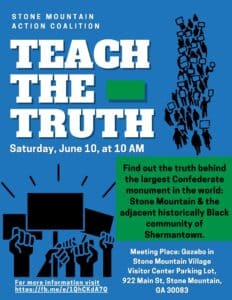 Sally organizes with a variety of groups, including the Stone Mountain Action Coalition (SMAC) to free Stone Mountain Park from its Lost Cause legacy, the Atlanta Coalition for Education Equity to transform schools into places that meet the needs of their students and families, and the Teach for Freedom Collective to end government censorship of education and make schools spaces of liberation. Sally organized a Teach Truth Day of Action on June 10 with SMAC.
Sally organizes with a variety of groups, including the Stone Mountain Action Coalition (SMAC) to free Stone Mountain Park from its Lost Cause legacy, the Atlanta Coalition for Education Equity to transform schools into places that meet the needs of their students and families, and the Teach for Freedom Collective to end government censorship of education and make schools spaces of liberation. Sally organized a Teach Truth Day of Action on June 10 with SMAC.
This summer, Sally will realize the focus of her Prentiss Charney fellowship work with a youth participatory action research project called In the Shadow of Stone Mountain: Historicizing Shermantown. For six days, students will investigate how citizens of Shermantown, an African American community in the shadow of the world’s largest Confederate monument, mobilized a variety of tactics to thrive despite threats to their community’s safety and wellbeing. Students will use archives, oral interviews, place-based investigations, and secondary sources to expose buried histories of convict leasing, interracial strikes in the granite industry, prison labor, and protest.
Elizabeth Williams Wesley
High school social studies teacher; Equity and Inclusion Director in Philadelphia.
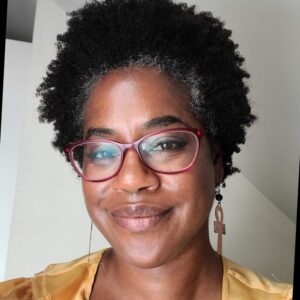 Elizabeth Williams Wesley is an activist, organizer, Pan-Africanist, school leader, educator, mentor, equity practitioner, student, mother, wife, sister, daughter, world traveler, and basketball coach who enjoys gardening in her spare time.
Elizabeth Williams Wesley is an activist, organizer, Pan-Africanist, school leader, educator, mentor, equity practitioner, student, mother, wife, sister, daughter, world traveler, and basketball coach who enjoys gardening in her spare time.
At Central High School in Philadelphia, her primary role is Director of Equity and Inclusion; she has also taught African American History and an AP Seminar course with African Diaspora content, sponsored the Black Student Coalition, and coached girls varsity basketball. She values building meaningful relationships with students and colleagues and engaging in social justice work for radical change with local grassroots organizations committed to the well being and academic achievement of Black children.
This school year, Elizabeth is on a sabbatical for the purpose of healing. In addition to her participation in the inaugural class of Prentiss Charney Fellows, she will be participating in two potentially transformative experiences this summer: Sisters In Education Circle Retreat with Sister Dr. Akosua Lesesne, and a Full Circle Retreat in Ghana with Sister Dr. Cynthia Dillard.
As part of her fellowship work this year, Elizabeth is writing an article about Tricia Hersey’s book Rest Is Resistance. Her article focuses on Hersey’s critical engagement with “grind culture” as it applies to teaching and, specifically, to Elizabeth’s own experience navigating burnout as Black woman educator.
Ayva Thomas
Racial and Educational Justice Director for the Northshore School District in Washington.
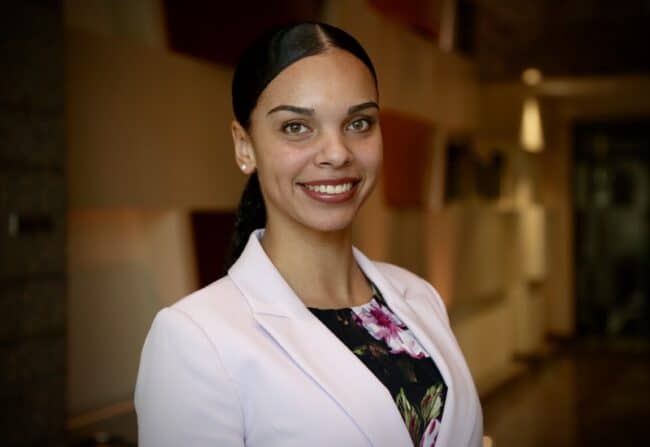
In Northshore, Ayva developed and facilitates the Student Justice Collective, leads the planning of Northshore’s annual Student Justice Conference, and strives to cultivate youth leadership and amplify youth voice in all of her work with her team. Ayva also oversees the Racial and Educational Justice Teams at each of Northshore’s school sites and the District’s Racial and Educational Justice Committee. She has been a key leader in the development and implementation of Northshore’s P–12 Ethnic Studies Framework and high school Ethnic Studies course, joining a committed group of students, families, community members, staff, and administrators.
A skilled facilitator, Ayva moderated the Teaching for Black Lives study group orientation sessions in 2021 and 2022 (photo above). She also represented the Zinn Education Project on a podcast interview with the Teaching Artists Guild called “A Day of Purpose: Decolonizing Arts Education with Black Lives Matter at School.”
As part of her fellowship work, Ayva is writing an article that will grapple with how educators might conceive of educational justice work that is shaped with — not for — students. She will tell the story of her work with the Student Justice Collective (which she founded). The article will be an opportunity to reflect on her own leadership practices as an adult advisor, and provide a model for adult-collaboration with youth activists that can hopefully be a guide for other educators.
Her interview with Christopher Emdin, “Designing for Justice in and Beyond the STEM Classroom,” appears in the forthcoming spring issue of Rethinking Schools magazine.
Nick Palazzolo
Curriculum writer, organizer, and high school teacher in Philadelphia.
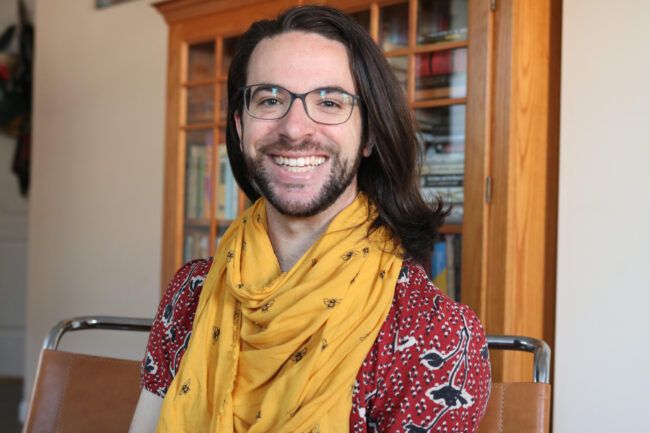
Nick Palazzolo teaches African American History, Queer Studies, and IB History at Central High School in Philadelphia. Prior to his last five years in the classroom, Nick designed and facilitated political education for high schoolers and worked on the leadership team of Teacher Action Group — work that cemented his plans to move into the classroom. He has also served on the leadership team of BARWE (Building Anti-Racist White Educators), collaborating to produce a monthly antiracist inquiry series that educators across the nation have used to ground their anti-racism work in schools.
Nick is currently revising for publication a classroom simulation he designed, Queer Liberation Movements from 1950–2016. According to Nick,
The simulation identifies six major dilemmas or debates within the various iterations of the Queer liberation movements of the latter half of the twentieth century through today. The aim with the dilemma protocol is to engage students in wrestling with questions of organizing goals or strategy salient at various points in our history.
In the face of the current wave of policies, bills, and laws banning Queer and Trans books and curriculum, Nick’s forthcoming curriculum is an important act of resistance.
Esther Honda
Teacher and media specialist in San Francisco.
Esther has been teaching young people in the San Francisco Bay Area for more than 30 years, in multiple subjects and grade levels. She has taught 7th- and 8th-grade science, 7th-grade humanities, middle school economics, 8th-grade history, and been both an elementary and middle school librarian — and that doesn’t even cover all her roles.
Constantly creating a wider circle, Esther has hosted Zinn Education Project workshops for her school district.
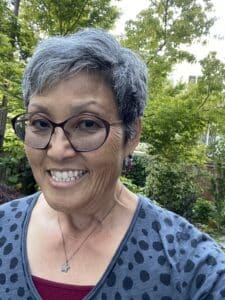 Coursing through all of Esther’s education work is her love of and belief in the power of well-designed, socially relevant curriculum. This year, she has engaged her 6th-grade English Language Development students in a multigenerational oral history Voice of Witness storytelling project that links students and local elders living in senior housing. Convinced that oral history provides both students and elders unique opportunities to build community ties as well as academic skills, Esther is currently at work on an article outlining the project for other educators who may want to attempt something similar in their own communities.
Coursing through all of Esther’s education work is her love of and belief in the power of well-designed, socially relevant curriculum. This year, she has engaged her 6th-grade English Language Development students in a multigenerational oral history Voice of Witness storytelling project that links students and local elders living in senior housing. Convinced that oral history provides both students and elders unique opportunities to build community ties as well as academic skills, Esther is currently at work on an article outlining the project for other educators who may want to attempt something similar in their own communities.
Nataliya Braginsky
High school social studies teacher in Connecticut.
In the last year, Nataliya Braginsky has moderated several critical conversations about educational justice: “Youth Rising,” “Beyond Schools in Crisis,” and “Where Do We Go From Here.” (See recording below.)
They organize with the Anti-Racist Teaching and Learning Collective in Connecticut, where they taught and lived for many years. In 2021, Nataliya was selected as the 2021 History Teacher of the Year.
Nataliya’s recent article In the Wake of Uvalde: A Teacher’s Plea for Police-Free Schools in Rethinking Schools is a must-read. They write, “This moment . . . calls for reimagining what true safety means, and working with our students to make that a reality.”
In March, Nataliya joined Daisha Brabham in leading a workshop for educators in Vermont on Reconstruction in Brattleboro.
Jessica A. Rucker
Doctoral student in the Department of American Studies at the University of Maryland, College Park.
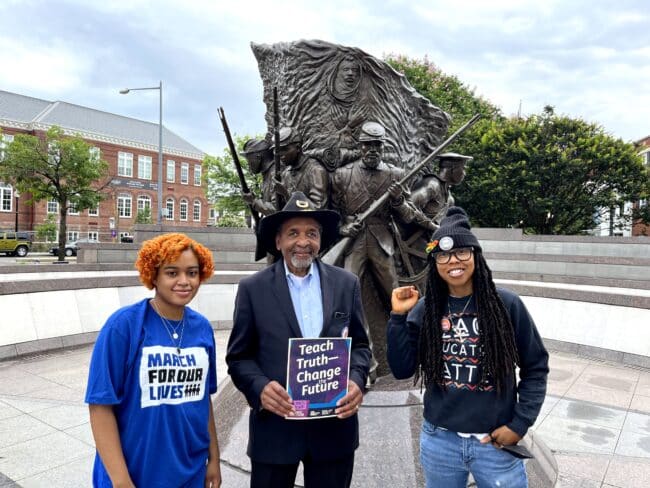
Ra’mya Davis, Dr. Frank Smith, and Jessica Rucker. 2022 D.C. Teach Truth Day of Action at the African American Civil War Memorial.
Prior to her graduate work, Jessica A. Rucker was a high school teacher in her home city, the U.S. colony of Washington, DC, teaching courses centering African American history and culture. She has also served as a volunteer docent at both the National Museum of African American History and Culture and the National Museum of American History. Jessica was the MC for the DC 2022 Teach Truth Day of Action. In this one minute video clip, Jessica shares why she is committed to teaching truthfully about U.S. history.
T. J. Whitaker
High school language arts teacher in the New Jersey South Orange-Maplewood School District.
T. J. Whitaker draws on his decades of experience as a teacher and organizer to support students in New Jersey and teachers around the country.
T. J. advises his high school Black Student Union, helps run the MapSO Saturday Freedom School classes, and serves as Assistant Affirmative Action Officer for his school district. Along with Dr. Kelly Harris, T. J. is organizing a statewide Model Gary Student Convention to help students develop political platforms on issues that impact their lives today. T. J. is hosting a Fugitive Pedagogy study group for young Black teachers and he hosted an online panel in February to discuss Look for Me in the Whirlwind: From the Panther 21 to 21st–Century Revolutions.
T. J. is also an active participant in our online Teach the Black Freedom Struggle classes and related curriculum workshops.
We are lucky to teach, learn, and organize alongside all of the Prentiss Charney Fellows.

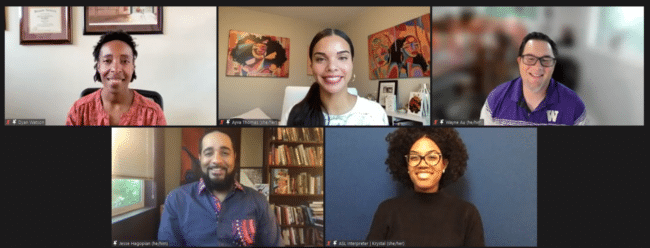
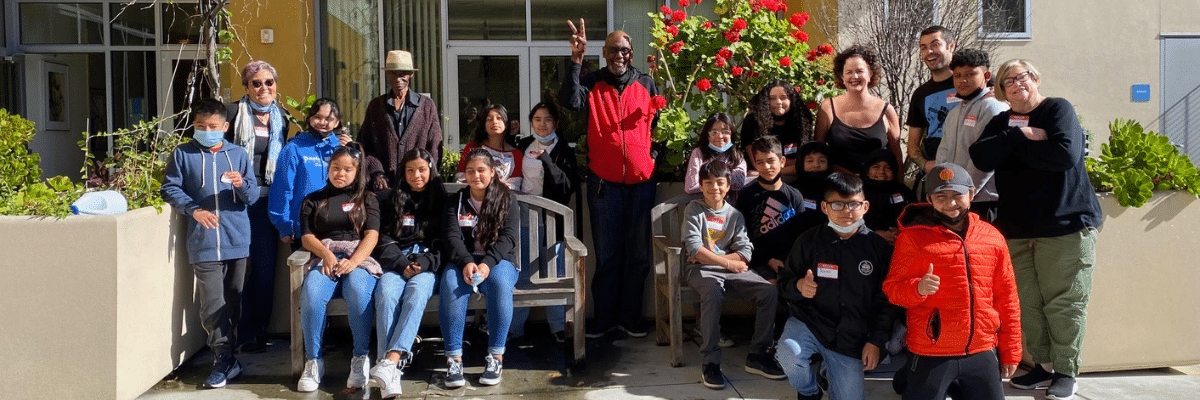
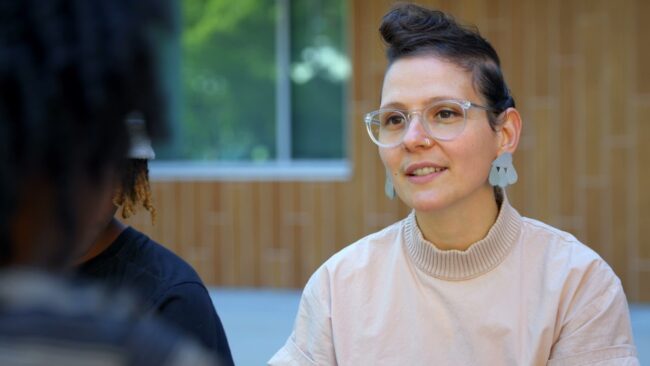
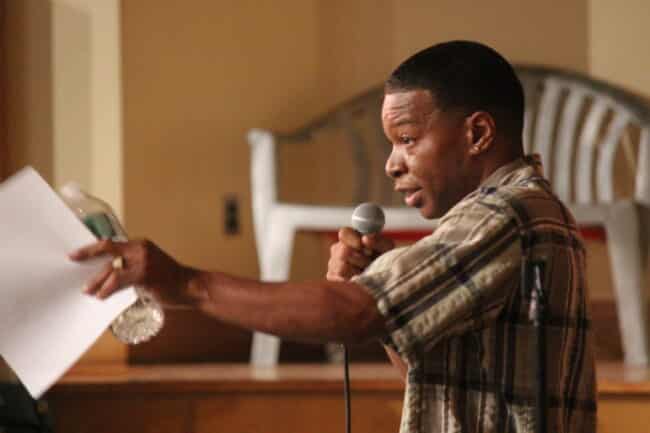
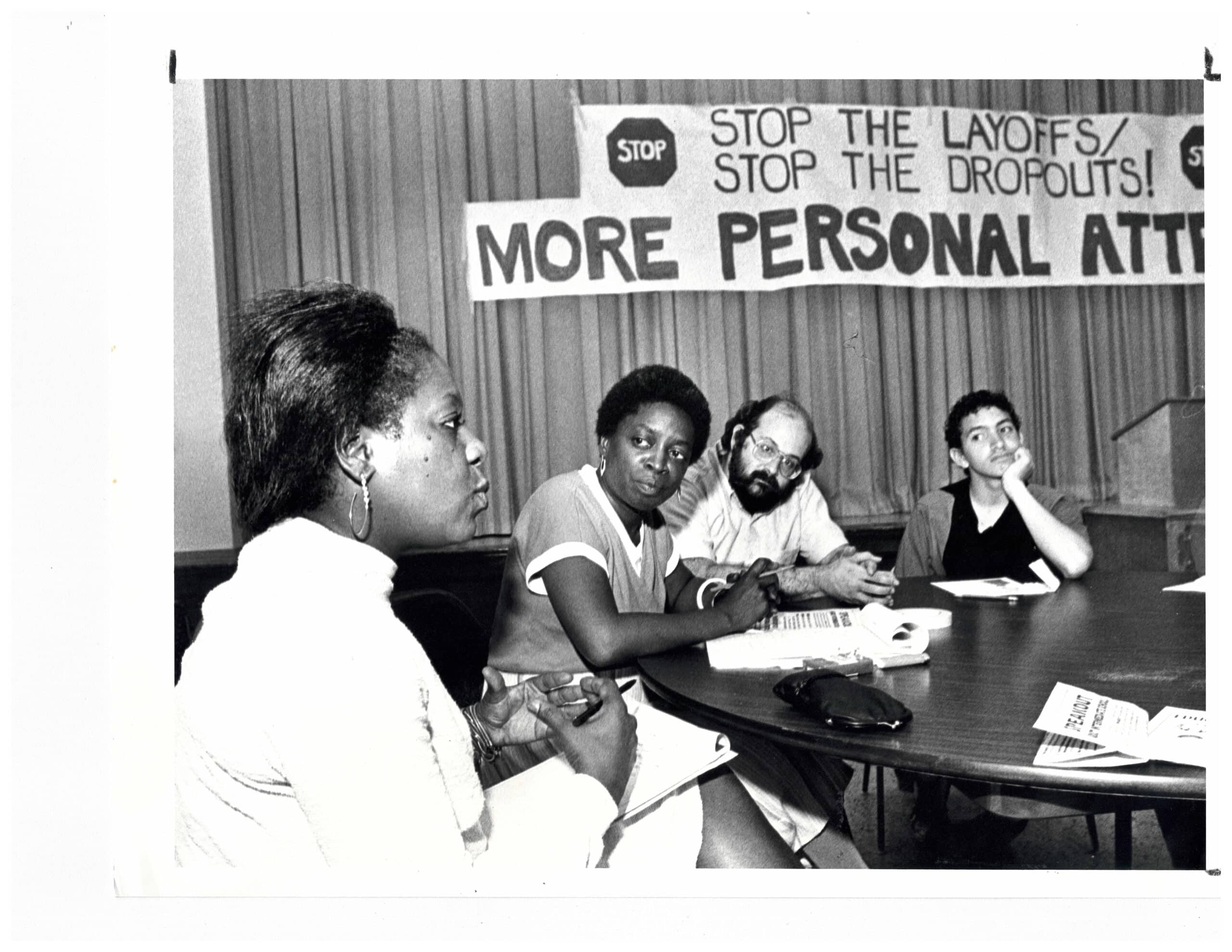





Twitter
Google plus
LinkedIn